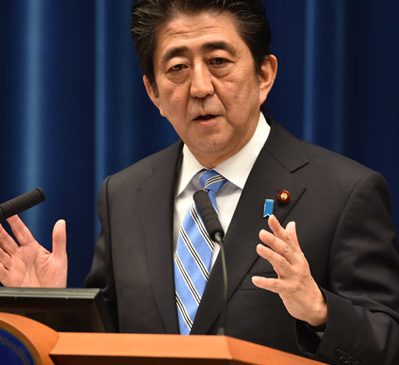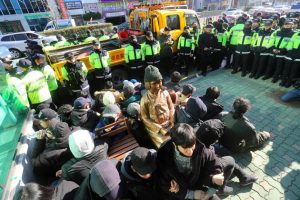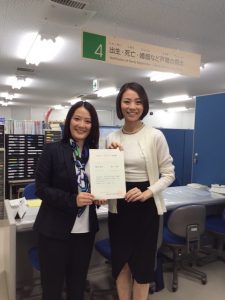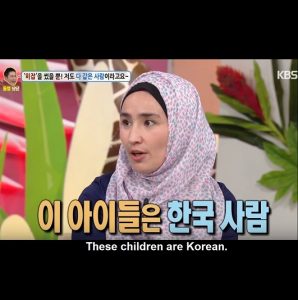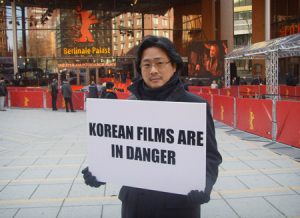We Are Soldiers, Bolting Across the Heavens: Women’s Contradictory Empowerment and Sisterhood in Shirai Yumiko’s “Wombs”
Memo #404 By: Akiko Hirao – akiko.hirao [at] gmail.com Women “pregnant” with the fetus of an alien species that allows them to teleport instantaneously as essential transporters of troops and supplies in a desperate war against oppressors – this is the premise of the award-winning manga by Shirai Yumiko, Wombs. An allegorical tale of conflicting […]
Abe Shinzō and Japan’s Proactive Contribution to Realism
Memo #403 By: Giulio Pugliese – giulio.pugliese [at] kcl.ac.uk Abe Shinzō’s comeback in December 2012 triggered a new dynamism in Japanese security practices. Relative domestic political stability, a deteriorating regional environment, and Abe’s appreciation for high politics has enabled the Japanese government to push for constitutional reinterpretation, pass embattled security legislation, and inaugurate new security […]
Unfit for Broadcast: The Censorship of K-pop Girl Groups
Memo #401 By: Azalea Lee – azalea [at] mail.ubc.ca With new K-pop girl groups debuting on a seemingly monthly basis, differentiation between groups is often attempted by pushing the sexual envelope—skirts are getting shorter, lyrics are becoming more suggestive, and choreography more risqué. This overexposure is often flagged and ultimately censored by the organizations that […]
More than Sports: Politics in the Origins of the Professional Baseball League in South Korea
Memo #399 By: Jinsung Kim – mitol8274 [at] gmail.com The KBO (Korean Baseball Organization), South Korea’s professional baseball league, has grown both quantitatively and qualitatively since its establishment in 1982. Some 7 million domestic fans attended games in 2016, while the Korean national team’s victories at the 2008 Beijing Olympic Games and the 2015 WBSC Premier12 attracted […]
The Future of Cambodian Heritage under China
Memo #398 By: Sarah K. Youngblutt – syoungblutt [at] gmail.com Of the 193 States Parties to the UNESCO World Heritage Convention (1972), Italy (with 47), Spain (45), France (42), and Germany (41) had traditionally held the most World Heritage Sites (WHS), with half of all WHS located in Europe and North America. In recent years, China […]
A New Era for Chinese Cartoons (Manhua)?
Memo #396 By: Nick Stember – nick.stember [at] gmail.com Chinese manhua (literally, ‘casual pictures’) remain virtually unknown in Europe and North America, trailing Japanese manga in popularity even within mainland China. Though China has a long history of satirical cartoons and comic strips going back to the early 20th century, since the 1990s Chinese-originated comics and […]
Why is the ‘Comfort Women’ dispute a never-ending story?
Memo #394 By: Ji Young Kim – jiyoungkim333 [at] gmail.com and Jeyong Sohn – sohn [at] rikkyo.ac.jp On December 28, 2015, the “comfort women” problem, one of the major stumbling blocks in Japan-South Korea relations, seemed to have been resolved through a governmental agreement between the two countries. Despite its characterization as a “final and […]
Local Governments and the Politics of LGBT Issues in Japan
Memo #393 By: Yasuo Takao – Y.Takao [a] curtin.edu.au In Japan, there was a history of open homosexuality as described in literary evidence dating back from the Heian period (794 – 1185). But in the present day, the Japanese legal system has continually ignored sexual minority issues, while not explicitly criminalizing homosexual behavior (except for […]
Multicultural Policy in South Korea and its Implications for Social Inclusion of Multiethnic Youth
Memo #391 By: Léo-Thomas Brylowski – ltbrylowski [at] gmail.com A record number of children born from mixed marriages are starting to make their way through South Korea’s public schooling system since the country’s multicultural turn in 2007. These children represented less than 0.5% of all students enrolled in Korean public schools in 2010, but are […]
Subsidies and the Film Industry: Lessons from France and South Korea
Memo #390 By: Patrick Messerlin – patrick.messerlin [at] gmail.com and Jimmyn Parc – jimmynparc [at] gmail.com With the continued dominance of Hollywood films around the world, policy makers in Asia and elsewhere are increasingly considering government subsidies as a major fuel for strengthening their national film industries. However, the true effectiveness of subsidies on […]

